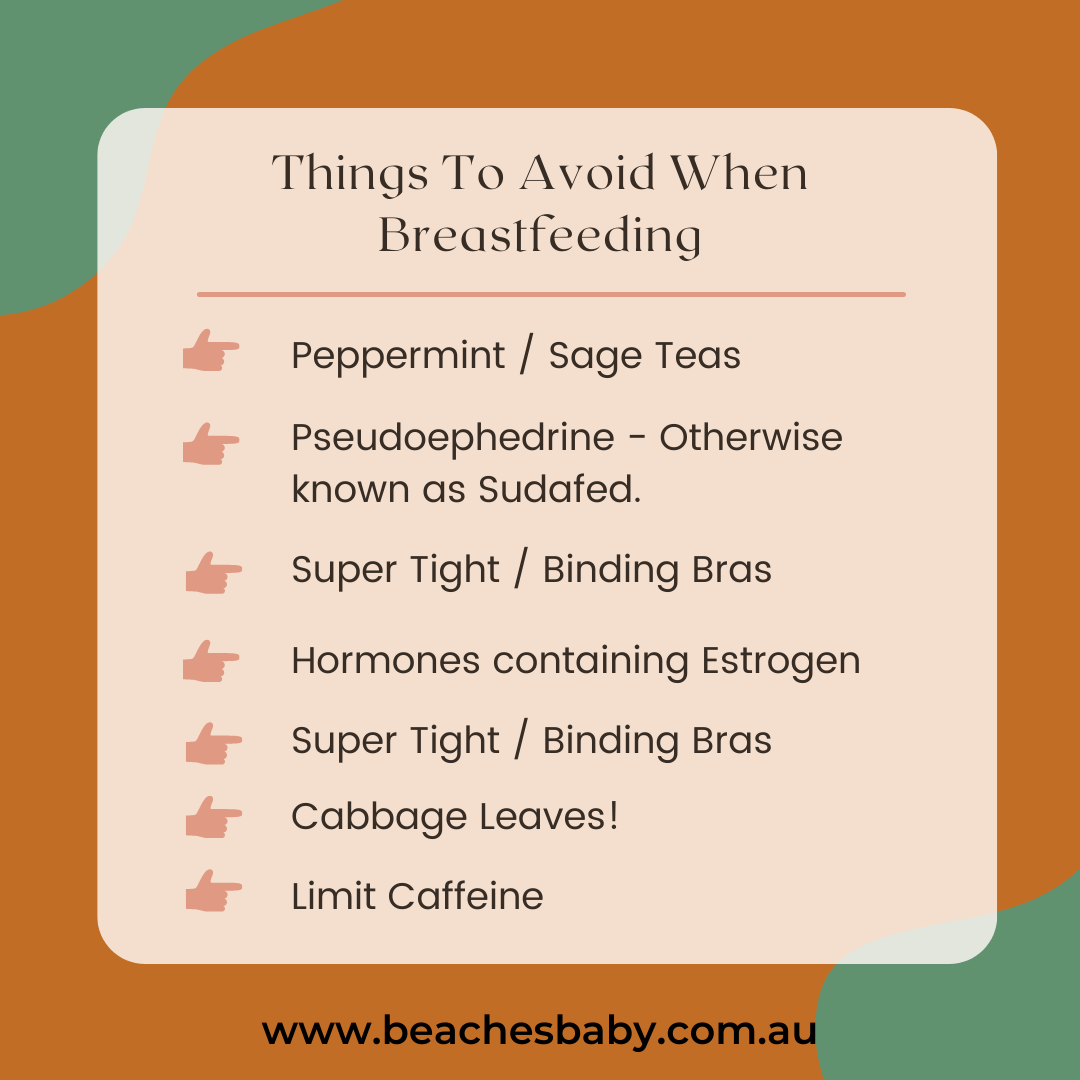
Beaches Baby Blog
What are some of the causes of Mastitis? (there are more than you realise!)
There isn’t always one obvious cause of mastitis. Some of the detective work we have to do is asking lots of questions about your history. There can be some strange things that make someone unfortunately more susceptible to mastitis. There are the obvious ones, not fully draining the breast, skipping feeds or a poor latch. But sometimes a perfect storm of stress, trauma coming to surface, lack of sleep, poor snacking habits and a body prone to inflammation can trigger it. As always, seek help and try to be aware of what might be triggering for you so that you can take steps to manage your situation.
Things to Avoid During Lactation
While I don’t generally love telling parents what they can and can’t do or eat etc during lactation, there are a couple of things to be aware of that can have an impact on milk supply. This list isn’t exhaustive and you should always check with your primary caregiver or lactation specialist.
Peppermint - Excessive amounts of peppermint could lower milk supply in some mothers.
Sage Tea - Due to the drying properties of sage and infant gut hypersensitivity, it is recommended to avoid sage either as tea or in foods.
Pseudoephedrine, otherwise known as Sudafed, is used as a decongestant, meaning it is used to dry up mucus. In women with marginal or low supply, this can cause further milk loss and it is generally recommended to avoid it while breastfeeding for most breastfeeding parents.
COVID19 and Breastfeeding
The good news is there is no evidence that COVID-19 can be passed on to your baby in breast milk, and the benefits of breastfeeding and the protection it offers outweigh any possible risks. There are no reports showing the COVID-19 virus (SARS-CoV-2) is present in breastmilk.
There have also been recent studies into antibodies in breastmilk and their protection factors for newborns. Breastfeeding women who have been infected with Covid-19 continue to secrete virus-neutralising antibodies into their milk for up to 10 months.




